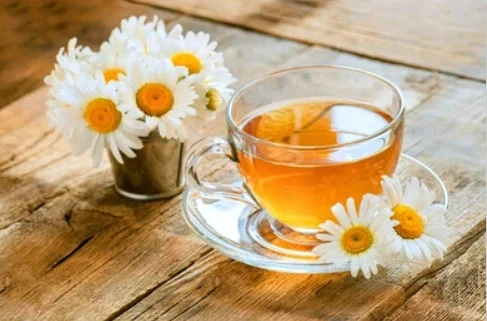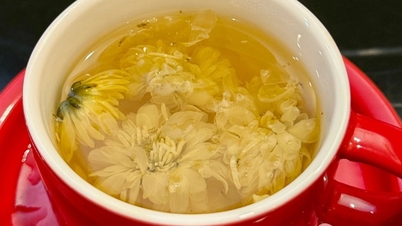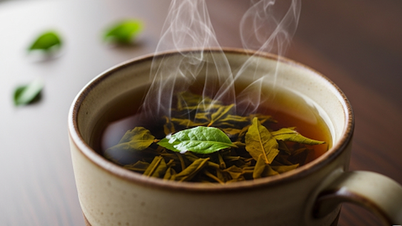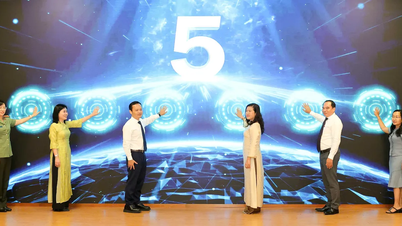Doctor Pham Anh Ngan , University of Medicine and Pharmacy Hospital, Ho Chi Minh City - Branch 3, replied: Tea is a familiar drink that has existed since ancient times in most countries and continents. Depending on the region, there will be different types of tea made from different herbs and the corresponding time of day to drink tea.

During afternoon tea time, you can use some types of tea such as flower tea such as chrysanthemum tea, rose tea, lotus heart tea,... with moderate water, to help calm the mind and fall asleep easily.
A cup of tea (about 230 ml) contains 30-50 mg of caffeine, packaged tea will contain more caffeine than loose leaf tea, green tea contains about 60-70 mg of caffeine.
According to the recommendations of the US Food and Drug Administration (FDA), a healthy person can drink up to 400 mg of caffeine in a day.
Depending on the body, everyone's way of drinking tea is not the same. Accordingly, morning tea time requires alertness and refreshment, you can choose teas such as green tea, oolong tea, longjing tea, lotus tea... Afternoon tea time can use some types of tea such as flower tea such as chrysanthemum tea, rose tea, lotus heart tea... with moderately brewed water, helps calm the mind, easy to fall asleep.
Tea also helps aid digestion, however because tannins in tea can precipitate protein, tea should be consumed 20 minutes after meals.
It should also be noted that people with anemia who need to supplement iron should drink tea between meals and between meals and at different times to take medication, because tea limits the absorption of iron in the body.
Some leaf teas can be diuretic, so be careful to limit drinking them in the late afternoon or evening.
Also, you should not completely replace filtered water with leaf tea. You need to supplement enough water during the day.
Readers can ask questions to the Doctor 24/7 column by entering comments below the article or sending them via email: suckhoethanhnien247@gmail.com .
Questions will be forwarded to doctors, experts... to answer for readers.
Source link


![[Photo] The 1st Congress of Phu Tho Provincial Party Committee, term 2025-2030](https://vphoto.vietnam.vn/thumb/1200x675/vietnam/resource/IMAGE/2025/9/30/1507da06216649bba8a1ce6251816820)
![[Photo] Panorama of the cable-stayed bridge, the final bottleneck of the Ben Luc-Long Thanh expressway](https://vphoto.vietnam.vn/thumb/1200x675/vietnam/resource/IMAGE/2025/9/30/391fdf21025541d6b2f092e49a17243f)

![[Photo] Solemn opening of the 12th Military Party Congress for the 2025-2030 term](https://vphoto.vietnam.vn/thumb/1200x675/vietnam/resource/IMAGE/2025/9/30/2cd383b3130d41a1a4b5ace0d5eb989d)
![[Photo] General Secretary To Lam, Secretary of the Central Military Commission attends the 12th Party Congress of the Army](https://vphoto.vietnam.vn/thumb/1200x675/vietnam/resource/IMAGE/2025/9/30/9b63aaa37ddb472ead84e3870a8ae825)
![[Photo] President Luong Cuong receives President of the Cuban National Assembly Esteban Lazo Hernandez](https://vphoto.vietnam.vn/thumb/1200x675/vietnam/resource/IMAGE/2025/9/30/4d38932911c24f6ea1936252bd5427fa)
































































































Comment (0)